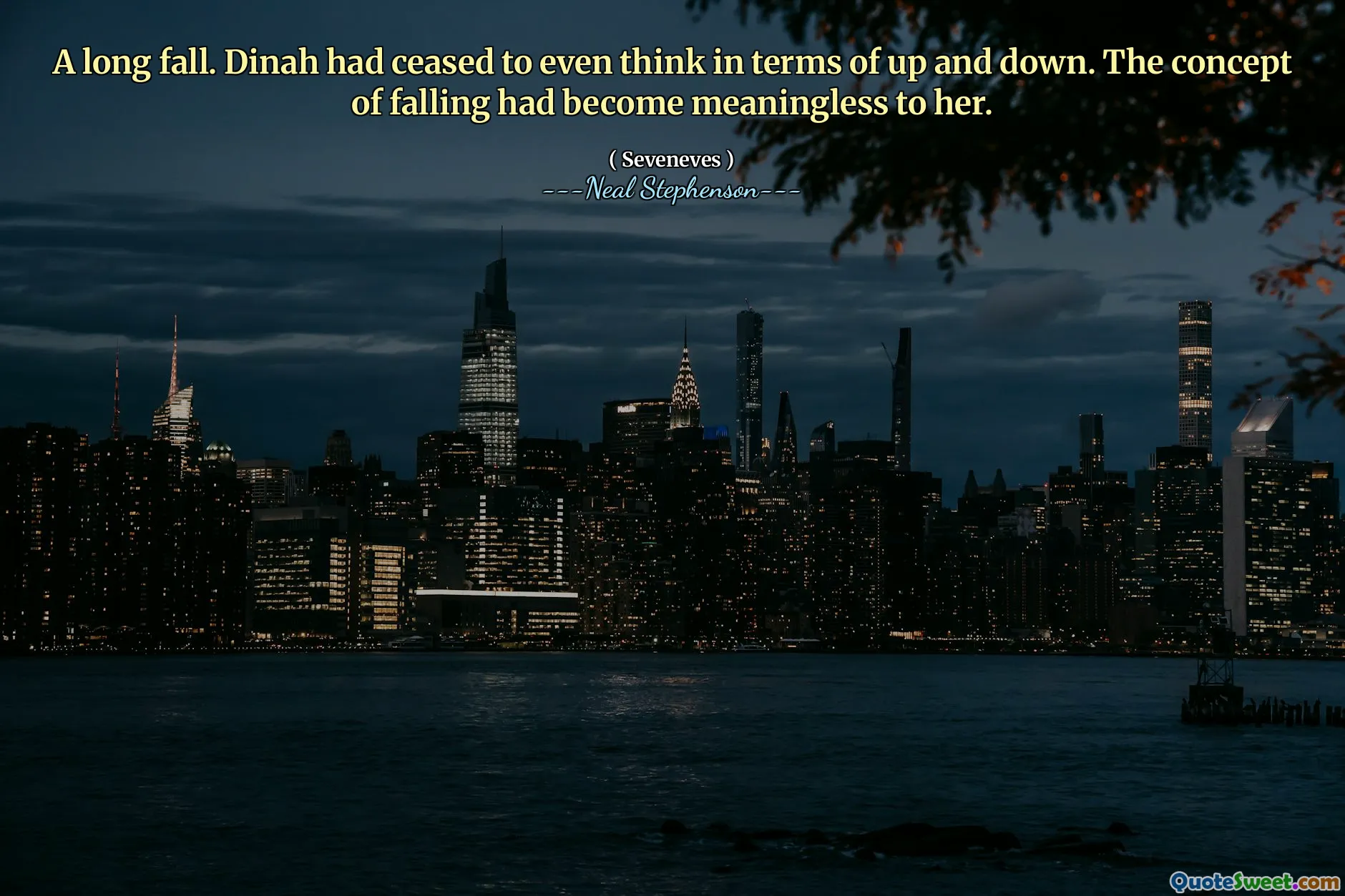
A long fall. Dinah had ceased to even think in terms of up and down. The concept of falling had become meaningless to her.
This excerpt from Neal Stephenson's "Seveneves" captures a profound shift in perception that transcends physical experience and enters the realm of psychological and existential transformation. The notion of a "long fall" typically evokes a clear, measurable movement through space—downward, influenced by gravity, with a definitive beginning and an anticipated end. Yet, for Dinah, this familiar concept dissolves into insignificance. Her mind no longer processes the sensation of falling within the traditional spatial framework of "up and down." This reflects a deeper detachment from reality or a radical adaptation to extreme conditions where normal reference points lose their meaning.
The quote illustrates how prolonged exposure to extraordinary circumstances can rewire human cognition and emotional responses. In modern literature and science fiction alike, the notion of losing one’s grounding or slipping past standard sensory interpretations often symbolizes a broader existential crisis or transformation. Dinah's experience resonates on two levels: physically, she is experiencing a fall so extended or unanchored that typical gravity-bound concepts are inadequate, and psychologically, she endures a mental shift where perception itself becomes disoriented or transcended.
From a metaphorical perspective, Dinah’s loss of directional thinking mirrors moments in life when individuals confront profound uncertainty or trauma. When the frameworks we rely on to make sense of the world crumble, concepts once taken for granted can feel meaningless, flushing away previously stable anchors. This passage can evoke empathy in readers who have experienced similar feelings of disorientation—whether due to grief, fear, or transformation—and shows how adaptive yet alien such states can be.
Moreover, from a scientific standpoint, the quote touches on consequences of altered physical environments, such as zero gravity or other exotic conditions in space, which is a central theme of "Seveneves." Stephenson’s narrative often explores the human response to vast cosmic challenges, and this quote encapsulates how those challenges extend beyond the technical into the psychological. It hints at the mental endurance required in the face of infinite falls or undefined spaces where human perception and conceptions must evolve.
In summary, this passage distills a convergence of physical, psychological, and philosophical disorientation, offering a rich reflection on how humans process and adapt to transformative experiences. It challenges readers to consider how the familiar can become alien and how the inner landscape shifts alongside changes in the outer environment, capturing the essence of human resilience and vulnerability.






